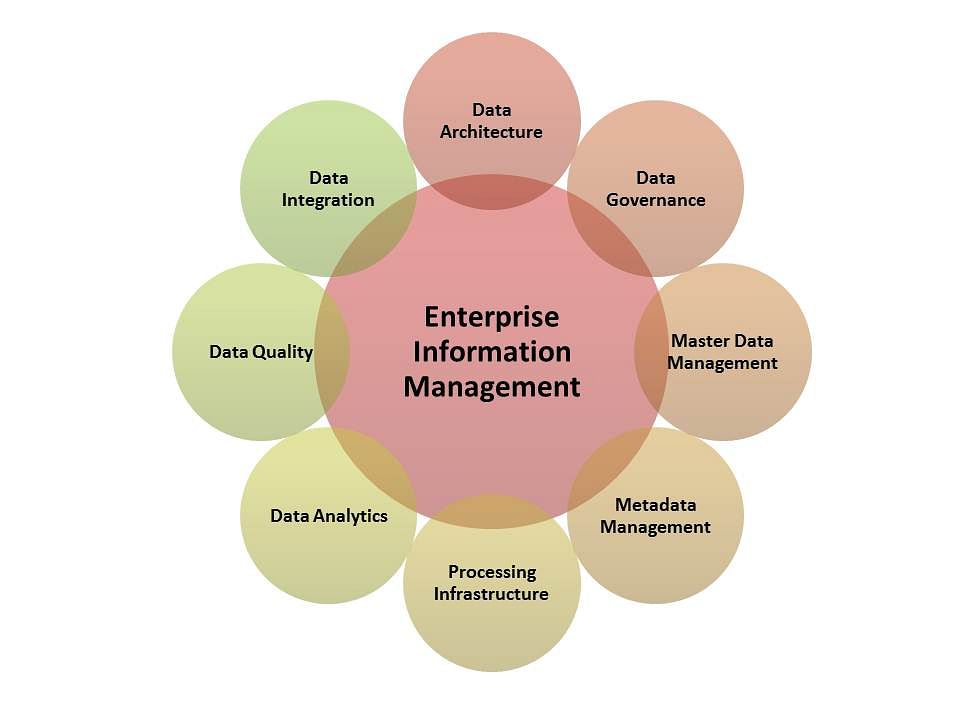How Big Data Can Transform Your Business

Every business organization, small or big, needs valuable data and insights. When it comes to understanding your target audience and customer’s preferences, big data plays a very important role. It even helps you anticipate their needs. The right data needs to be effectively presented and properly analyzed. It can help a business organization achieve various goals.
What is Big Data in Business?
Before delving into its transformative potential, it’s essential to understand what Big Data entails.
Big Data refers to vast and diverse datasets that are generated at high velocity, volume, and variety. These datasets come from various sources, including social media, transaction records, sensors, and more. The 3 Vs of Big Data—Volume, Velocity, and Variety—characterize the enormity and complexity of data that modern businesses encounter.
With Big Data, business organizations can use analytics, and figure out the most valuable customers. It can also help businesses create new experiences, services, and products.
How Big Data Can Help You Do Wonders In Your Business
1. Enhancing Decision-Making with Big Data
One of the most significant advantages of Big Data is its ability to enhance decision-making processes. Traditional decision-making often relies on historical data and intuition, which can be limited and subjective. Big Data, on the other hand, provides a wealth of real-time and historical information that can lead to more informed and precise decisions.
Harnessing Big Data has become crucial for many leading companies seeking to outperform their competitors. In numerous industries, both new entrants and established players use data-driven strategies to compete, capture market share, and innovate. Indeed, Big Data is prevalent in almost every sector, from IT to healthcare.
In the healthcare industry, data pioneers analyze pharmaceutical outcomes to uncover risks and benefits not evident during initial clinical trials. Big Data enables more thorough analysis and prediction of trial outcomes. Early adopters have also utilized data from sensors embedded in various products, from industrial goods to children’s toys. This data helps companies understand how products are used in real-world scenarios, facilitating the development of new services and the design of future products.
Predictive Analytics
Predictive analytics is a key component of Big Data that helps businesses anticipate future trends and behaviors. By analyzing historical data and applying advanced statistical algorithms, businesses can predict outcomes such as customer purchasing patterns, market trends, and potential risks. For example, retailers can use predictive analytics to forecast demand for products, optimize inventory levels, and improve supply chain management.
Data-Driven Strategies
Big Data enables businesses to move from intuition-based strategies to data-driven strategies. By integrating data from various sources, companies can develop comprehensive insights into their operations, customers, and market conditions. This holistic view allows businesses to craft strategies that are based on empirical evidence rather than guesswork. For instance, a financial institution can use Big Data to develop targeted marketing campaigns, assess credit risk more accurately, and identify new investment opportunities.
According to experts, Big Data can create numerous new growth opportunities and even give rise to entirely new categories of businesses, such as those specializing in analyzing and aggregating industry data. Many of these companies will be positioned at the center of vast information flows related to services and products, suppliers and buyers, consumer intent, and preferences. Companies across industries should begin aggressively building their Big Data capabilities.
In addition to the broad scale of Big Data, its high frequency and real-time nature are crucial. For instance, estimating metrics such as consumer loyalty was once done retrospectively. With Big Data, such practices are now used more extensively, significantly enhancing predictive power. Similarly, high-frequency data allows businesses to test theories in real time.
Beyond these general benefits, Big Data offers many advantages to businesses. It is currently utilized in both the public and private sectors. In the following section, we will discuss the most important benefits of Big Data in business.
2. Improving Customer Experience
Today’s consumers are savvy and prioritize their needs. Before making a purchase, they compare different options and often engage with businesses through social media channels, demanding personalized attention. Many customers even expect to be acknowledged for their purchases.
Big Data enables businesses to profile customers in detail, facilitating real-time, one-on-one interactions. In a competitive environment, this personalized approach is essential. Meeting customers’ expectations is no longer a luxury but a necessity.
Personalized Marketing
Personalization is a powerful tool for engaging customers and driving sales. By analyzing data from customer interactions, purchase history, and online behavior, businesses can create highly targeted marketing campaigns. For example, e-commerce platforms can recommend products based on previous purchases and browsing history, while airlines can offer personalized travel recommendations and promotions.
Customer Segmentation
Big Data allows businesses to segment their customer base more effectively. Traditional segmentation methods often rely on broad categories, but Big Data enables more granular segmentation based on individual preferences and behaviors. This level of detail helps businesses tailor their marketing efforts, improve customer retention, and increase conversion rates.
A good example involves a customer entering a bank. When a customer enters the establishment, the clerk can use Big Data to access the customer’s profile in real-time. This allows the clerk to learn about the customer’s preferences and desires, enabling them to recommend relevant products and services.
Big Data also plays a crucial role in integrating physical and digital shopping experiences. For instance, an online retailer can easily send targeted offers via mobile carriers based on a consumer’s increased social media activity.
3. Driving Innovation
Big Data is a catalyst for innovation across industries. By uncovering hidden patterns and correlations, businesses can identify new opportunities and develop innovative products and services.
Re-Develop Products
Big Data is an excellent tool for collecting and utilizing feedback. It helps you understand how customers perceive your services and products, allowing you to make necessary adjustments and re-develop your offerings. By analyzing unstructured social media text, you can uncover general feedback from your customers and segment it by geographical locations and demographic groups.
Additionally, Big Data enables you to test numerous variations of high-end computer-aided designs within seconds. For example, you can gather information about lead times, material costs, performance, and more, which enhances the productivity and efficiency of various production processes.
Operational Efficiency
Big Data also contributes to operational efficiency by identifying inefficiencies and optimizing processes. For example, manufacturers can use data from sensors and production lines to monitor equipment performance, predict maintenance needs, and minimize downtime. This proactive approach not only reduces operational costs but also improves overall productivity.
4. Enhancing Risk Management
Effective risk management is crucial for business sustainability. Big Data provides the tools to identify, assess, and mitigate risks more effectively.
Fraud Detection
In industries such as finance and insurance, Big Data plays a vital role in detecting and preventing fraud. By analyzing transaction patterns, user behavior, and historical data, businesses can identify unusual activities and potential fraudulent behavior. Machine learning algorithms can flag suspicious transactions in real-time, reducing the risk of financial losses and enhancing security.
Market Risk Assessment
Big Data also aids in assessing market risks by analyzing economic indicators, market trends, and geopolitical events. Businesses can use this information to anticipate market fluctuations, adapt their strategies, and minimize potential losses. For instance, investment firms can leverage Big Data to evaluate market conditions and make informed investment decisions.
Data Safety
Big Data tools allow you to map the entire data landscape across your company, helping you analyze potential internal threats. With this information, you can ensure that sensitive data is protected appropriately and stored according to regulatory requirements.
Due to this, most industries have been focusing on Big Data to ensure data safety and protection. This is particularly important for organizations handling financial information, credit and debit card data, and similar sensitive practices.
5. Create New Revenue Streams
Big Data provides valuable insights through market and consumer analysis. This data is not only beneficial for your own organization but can also be valuable to other parties. For instance, you can sell non-personalized trend data to large industries within the same sector.
There’s no doubt that Big Data will continue to play a crucial role across various industries worldwide. It has the potential to significantly enhance business operations. To maximize these benefits, it is essential to train your employees in Big Data management. With proper management, your business will become more productive and efficient.
If you’re interested in becoming a Big Data expert, we have just the guide for you. The Big Data Career Guide will provide insights into the most current technologies, the top companies hiring in the field, the skills needed to jumpstart your career, and a personalized roadmap to becoming a successful Big Data professional.
6. Facilitating Competitive Advantage
In a rapidly evolving market, gaining a competitive advantage is essential for business success. Big Data provides insights that can help businesses stay ahead of the competition.
Benchmarking
Benchmarking against competitors is crucial for understanding relative performance and identifying areas for improvement. Big Data allows businesses to gather information on competitors’ strategies, market share, and customer sentiment. This information helps businesses adjust their strategies, identify emerging trends, and seize new opportunities.
Strategic Planning
Big Data supports strategic planning by providing a comprehensive view of market dynamics and customer preferences. Businesses can use data-driven insights to develop long-term strategies, allocate resources effectively, and identify growth opportunities. For example, a company can analyze market trends and consumer behavior to expand into new markets or introduce new product lines.
Conclusion
Big Data has the potential to transform businesses by enhancing decision-making, driving innovation, improving customer experiences, and managing risks. By leveraging the insights derived from data, businesses can develop data-driven strategies, optimize operations, and gain a competitive edge. However, to fully harness the power of Big Data, organizations must address challenges related to data privacy, quality, and talent. As technology continues to evolve, embracing Big Data will be crucial for businesses seeking to thrive in an increasingly data-driven world.




